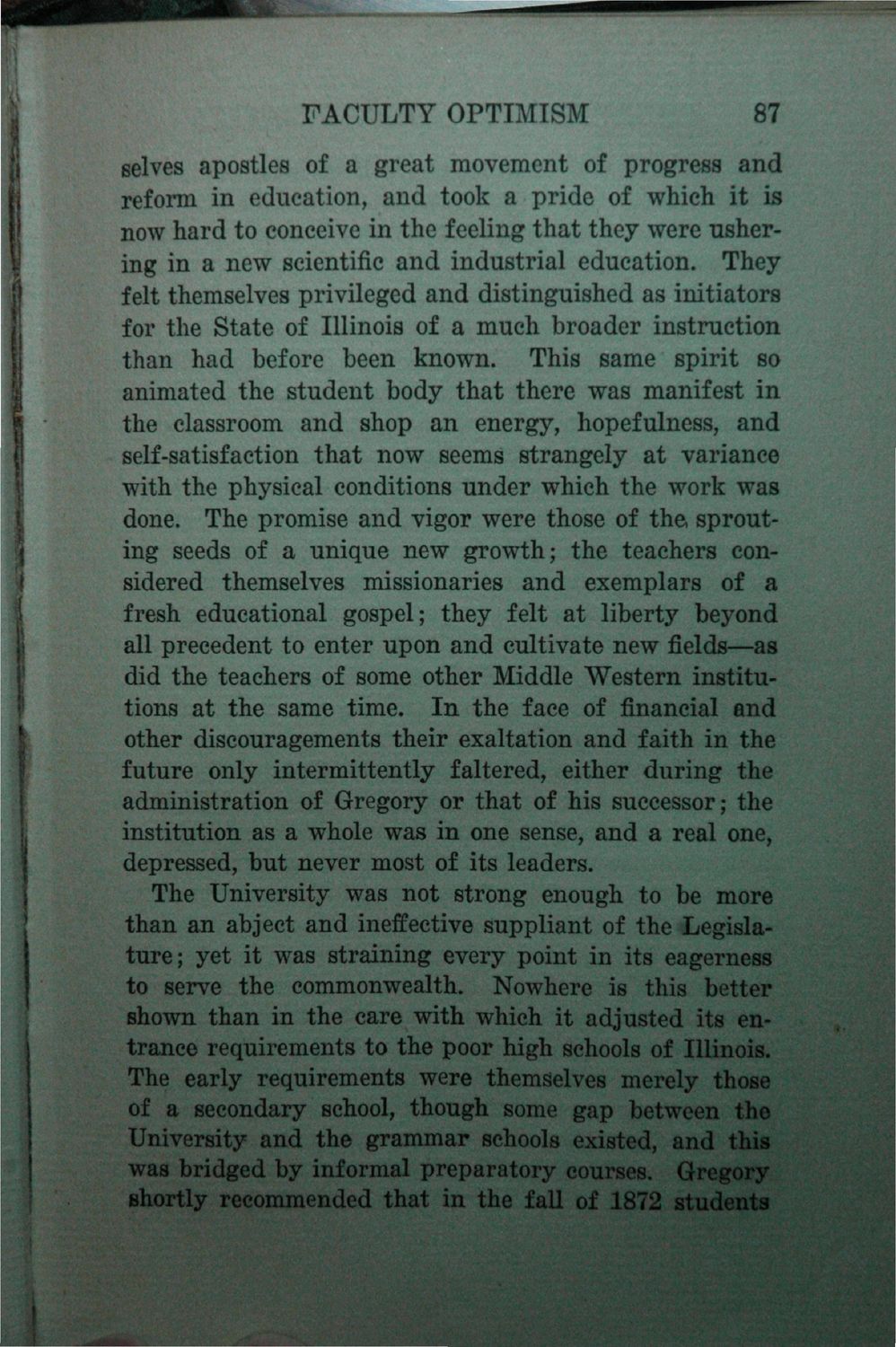| |
| |
Caption: Book - History of the University (Nevins)
This is a reduced-resolution page image for fast online browsing.

EXTRACTED TEXT FROM PAGE:
FACULTY OPTIMISM 87 selves apostles of a great movement of progress and reform in education, and took a pride of which it is now hard to conceive in the feeling that they were ushering in a new scientific and industrial education. They felt themselves privileged and distinguished as initiators for the State of Illinois of a much broader instruction than had before been known. This same spirit so animated the student body that there was manifest in the classroom and shop an energy, hopefulness, and self-satisfaction that now seems strangely at variance with the physical conditions under which the work was done. The promise and vigor were those of the sprouting seeds of a unique new growth; the teachers considered themselves missionaries and exemplars of a fresh educational gospel; they felt at liberty beyond all precedent to enter upon and cultivate new fields—as did the teachers of some other Middle Western institutions at the same time. In the face of financial and other discouragements their exaltation and faith in the future only intermittently faltered, either during the administration of Gregory or that of his successor; the institution as a whole was in one sense, and a real one, depressed, but never most of its leaders. The University was not strong enough to be more than an abject and ineffective suppliant of the Legislature; yet it was straining every point in its eagerness to serve the commonwealth. Nowhere is this better shown than in the care with which it adjusted its entrance requirements to the poor high schools of Illinois. The early requirements were themselves merely those of a secondary school, though some gap between the University and the grammar schools existed, and this was bridged by informal preparatory coursesM Gregory shortly recommended that in the fall of 1872 students
| |